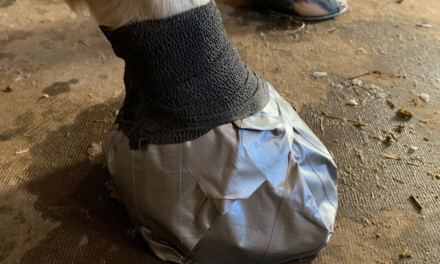We may earn money or products from the companies mentioned in this post. For more information please check out our disclosure page
To understand when to de-worm our horse, we need to understand the types of worms we’re dealing with.
1. WHAT TYPES OF WORMS ARE THERE?
There are four main classes of parasites that we treat horses for:
- small strongyle
- large strongyle
- ascarids
- tapeworms
2. WHAT DOES THIS MEAN WITH REGARDS TO YOUR HORSE?
The adult parasite lives in the horse. They reproduce inside the horse and their larvae pass through the horse’s manure and migrate to the surface area the horse lives in.
The horse then ingests the larvae in their living habitat, through the eating of grass or hay on the ground. The larvae or eggs hatch inside the horse and the cycle repeats itself.

.
This in turn increases the level of parasites inside the horse. This cycle is unique to domesticated horses. In the wild horses continually move while grazing, so unlike domesticated horses they rarely graze the same spot over and over.
Once the larvae have left the horses body it has a relatively short life span. So if the herd of horses returns to the same spot it is unlikely the larvae will still be living.
Domesticated horses graze the same paddocks repeatedly and by doing so the manifestation of parasites is continually increasing. Because of this fact we need to have a suitable de-worming program to protect our horses.
A build up of worms can cause a blockage in the GI tract and can cause colic, in the worst case scenario this can be fatal to your horse.
3. WHEN DO YOU DE-WORM YOUR HORSE
Firstly, you should determine if your horse needs de-worming. All horses have some parasites, and there is a certain level that will remain stable and not create issues for your horse.
Over the years parasites have developed resistance to de-wormers, and the traditional quarterly de-worming program is often being replaced with a de-worm as needed system, rather than on a set schedule.
Nowadays it is advised that a horse only be de-wormed when it NEEDS to be.



How do we know when it needs to be de-wormed?
We do fecal egg count tests for our horses twice a year. If the egg count is low we don’t de-worm as it is not needed. Many of our horse have not needed de-worming for quite some time.
One way to keep your count down is good pasture management.
Rotate pastures more often and cut down the number of horses to each paddock will also help.
When you first get a new horse ask your vet to do a fecal egg count. This way you will know if your horse needs de-worming right away and what type of parasitic infestation you are dealing with.
A fecal egg count is good for the strongyle and ascarids classes, but not for tapeworms.
Once the sample has gone to the lab for testing you will get a result that is a number like 50 EPG (eggs per gram) or 500 EPG for example.
Depending on the result will depend on the action you take. If you have a low egg count the likelihood is you will not have to de-worm your horse. Talk to your vet about the course of action to take after you have received the results
HOW DO YOU COLLECT A SAMPLE FOR A FECAL EGG COUNT?
1. Using a fresh manure is essential
2. On the outside of a plastic bag write the horses name, the date and the time of the sample.
3. Turn the bag inside out and put your hand inside.
4. Pick up a clean stool from a fresh manure then invert the bag so the stool is on the inside.
5. Remove as much air as possible from the bag.
6. Seal the bag and take to the vet as soon as you can.
ASSUMING YOU NEED TO DE-WORM YOUR HORSE
DIFFERENT WAYS TO DE-WORM YOUR HORSE
1. Pastes are the most common and convenient way to de-worm your horse. They are one dose tubes that are fairly easy to administer if your horse isn’t too fussy!
NOTE: make sure your horse doesn’t have a mouth full of hay or grain when you give the paste. The paste sticks to the feed substance and is easy to spit out. Make sure that have had no feed when you give it to them and hold their head up for a few seconds after you have given it to them.
The paste tends to stick to their tongue and makes it difficult for them to spit it out which is a good thing!
2. There are powdered forms of de-wormer for horses that are determined not to take the paste. This is mixed into grain feed on a daily basis keeping the infestation low.
Some of these versions are popular because they are all natural healthy options for horses. However, the disadvantage is that it needs to be administered daily in feed and if your horse is not on a grain, this may not be the right de-wormer for you.
3. There is an invermectin liquid that can also be put in the horses feed, or syringed directly into the horses mouth. It has the consistency of water but is also easy for the horse to spit out. You will need someone with skill to administer this effectively.
4. There are also injections that should only be given by a vet or a person experienced with administering needles. Some horses don’t mind needs, some can see one coming a mile away.
The amount of de-wormer you give is dependent on your horses weight. I have heard it claimed that giving your horse too much can cause colic and giving it too little can lead to a greater infestation and also possibly cause colic.
The latter is correct, you need to give your horse ENOUGH de-wormer for its weight. However, with regards to the pastes let me tell you a story:
A few years ago I de-wormed my prize foal and without paying attention I forgot to move the dial on the de-wormer tube to administer the correct amount of de-wormer for his weight. I pressed the applicator and it shot out, he got the FULL DOSE for a grown horse!
In a bit of a panic I immediately called the vet, who reassured me the paste de-wormers are designed so that a horse can have large amounts before it causes any harm. She assured me I didn’t have to worry at all.
CLASSES AND TYPES OF DE-WORMER
There are 4 main classes of de-worming compounds (anthelmintics) used to control internal parasites in horses: benzimidazoles, pyrantels, macrocyclic lactones (ivermectin, moxidectin), and praziquantel.
Different classes have different effectiveness against different types of parasites.
Research the different types, what their strengths and weaknesses are, and refer to your vet for what you should use should you have a high fecal egg count of a specific parasite.
SIGNS THAT YOU SHOULD BE CONCERNED
You should call your vet if your horse has difficulty in putting on weight, has a dull coat, or seems depressed. Other signs can be that they appear ‘tucked up’, or seem ribby high up on their barrel while being somewhat bloated on their lower belly.
I hope this was helpful!
admin
Latest posts by admin (see all)
- A Horse For All Reasons – Guest Blog by Lucy from Horse Factbook - April 8, 2020
- How To Deal With A Spooky Horse Trail Riding - March 31, 2020
- Our Top 20 Amazon Equestrian Products - January 30, 2020







